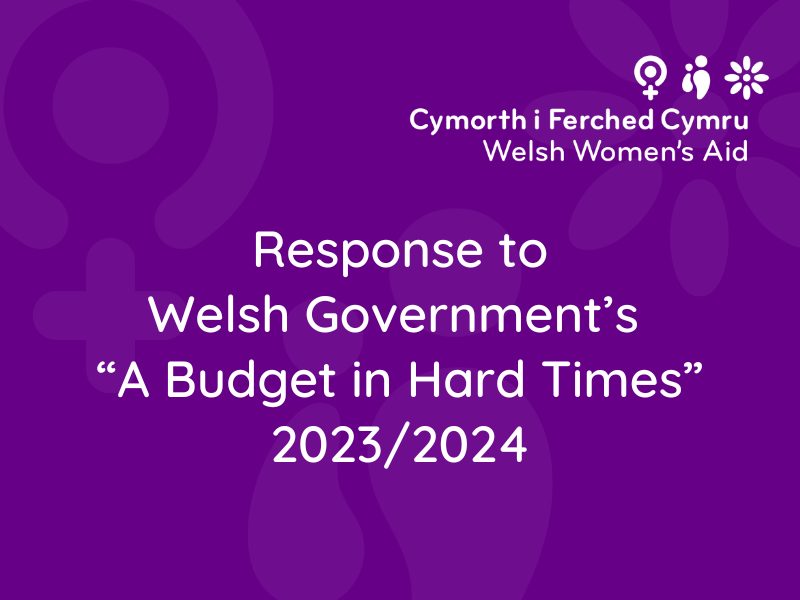
The Final Welsh Government Budget ‘’A Budget in Hard Times’’ for 2023/2024 was published on the 28th February 2023 and subsequently debated in the Senedd on the 7th March 2023, with 29 votes in favour.
Welsh Women’s Aid submitted a response to the open call for evidence by the finance committee in November 2022, highlighting the need for Welsh Government to utilise resources to address ongoing inflation, and the cost-of-living issues through a gendered lens. The response also highlighted that, despite relentless campaigning and an evidenced post-code lottery of support for survivors, services are still not currently being funded consistently across Wales and there is an urgent need to address this through sustainable commissioning and funding.
The VAWDASV sector is strained under the effects of the Covid-19 pandemic, alongside years of austerity and the deepening cost-of-living crisis- the only way to combat this is through funding which holds VAWDASV as a priority.
Following the recommendations made by the Equality and Social Justice Committee within their Gender based violence, The needs of migrant women report, we welcomed the Welsh Governance’s acceptance of the recommendation of a crisis fund for survivors subject to No Recourse to Public Funds (NRPF). However, following the final VAWDASV BEL budget we are disappointed to see that no additional funds have been made available for this specific crisis pot. This is a missed opportunity to tangibly help some of the most vulnerable survivors of VAWDASV.
As highlighted during the final budget debate on 07/03/23, the VAWDASV sector is facing a real term cut, (6.4% was quoted during debate) due to inflation rising higher than the funds provided. Among the VAWDASV strategy 22-26 objectives for Welsh Government is the aim to provide all victims with equal access to appropriate services, it is increasingly challenging to have faith in the sincerity of this goal, while funding is being cut.
With the absence of a sustainably funded sector that aligns with the socio-economic climate, we are gravely concerned that many specialist services, their staff members, and the survivors they provide lifesaving support to, will end up in further crisis.

